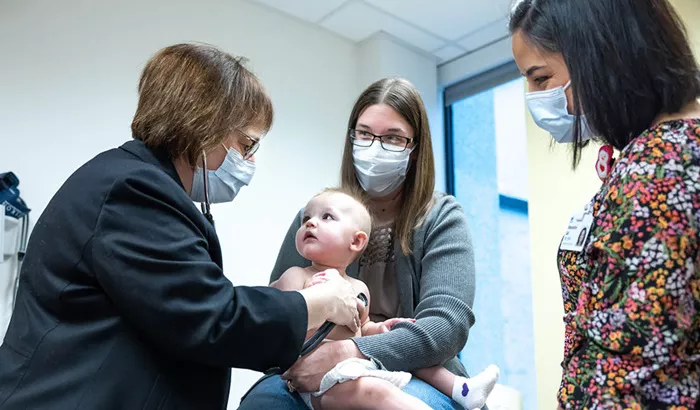A new study published in Circulation suggests that children born with congenital heart defects (CHD) may face a higher risk of developing cancer, with their mothers also showing an increased likelihood of cancer diagnosis. This research highlights potential genetic connections and the need for comprehensive care for families affected by CHD.
CHD is the most common birth defect in the United States, affecting approximately 12 infants per 1,000 live births, according to the American Heart Association. These defects can range from minor structural issues to severe malformations, including the absence of heart chambers or valves.
Recent medical advancements have allowed many children with CHD to survive longer than before, but emerging research suggests these children may face an elevated risk of developing other health conditions, including cancer. The study, led by Dr. June Huh of Samsung Medical Center in Seoul, Korea, analyzed health records from over 3.5 million live births between 2005 and 2019 in the Korean National Health Insurance Service database. The research followed both the infants and their mothers for an average of 10 years, tracking cancer diagnoses.
Key Findings
- Newborns with CHD had a 66% higher cancer incidence compared to those without CHD.
- Infants with congenital defects affecting blood vessels or heart valves had more than double the cancer risk, as did those with complex CHD.
- Leukemia and non-Hodgkin lymphoma were the most common cancers in both groups of children.
- Mothers who gave birth to infants with CHD were 17% more likely to be diagnosed with cancer within 10 years compared to mothers of unaffected children.
Although the exact cause of the increased cancer risk in mothers remains unclear, researchers speculate that genetic factors or mutations shared between mother and child may play a role. These genetic variants could contribute to both CHD and cancer risks, providing a potential shared pathway for both conditions.
Dr. Huh emphasized that these findings underscore the importance of a multidisciplinary approach to care for families affected by CHD. “The inclusion of various healthcare professionals in the treatment of congenital heart defects could help provide better, more comprehensive care for families,” he noted.
Implications for Maternal Health and Future Research
Keila N. Lopez, M.D., a cardiology expert with the American Heart Association, found the increased cancer risk among mothers of infants with CHD surprising. She suggested that factors like stress, often experienced by parents of children with health complications, might contribute to this association. “Stress is known to be related to cancer risk, and the emotional burden of caring for a child with a congenital heart defect could be a significant factor,” Lopez explained.
She emphasized the importance of continued surveillance for both mothers and children, noting the need for lifelong follow-up care to monitor for potential health risks, including cancer. Further research is needed to better understand the links between CHD and cancer, as well as the environmental or epigenetic factors that might be involved.
Study Limitations and Broader Implications
While the study provides valuable insights, it also has limitations. For instance, the possibility of unknown confounding factors influencing the results cannot be ruled out, and the small sample sizes for certain types of CHD may have impacted the analysis. Additionally, the study focused on data from Korea, so further research is needed to determine whether the findings are applicable to other populations.
This groundbreaking research calls for increased awareness of the potential long-term health risks associated with congenital heart defects and the importance of comprehensive care strategies for affected families.
Study Design and Data Collection
The study analyzed health records from the Korean National Health Insurance Service database, which included detailed demographic data and medical records for millions of individuals. To qualify for cancer inclusion in the study, diagnoses had to meet specific criteria, including at least three ICD-10 cancer codes within a year or one inpatient hospitalization.
The analysis was conducted in 2024, with findings potentially influencing future healthcare protocols for children and mothers affected by congenital heart defects.
Related topic:
Better Heart Health May Lower Neurodegenerative Risk
Teen Mental Health Shows Mixed Trends, Study Finds
New Finnish Study Challenges Exercise and Longevity Link


